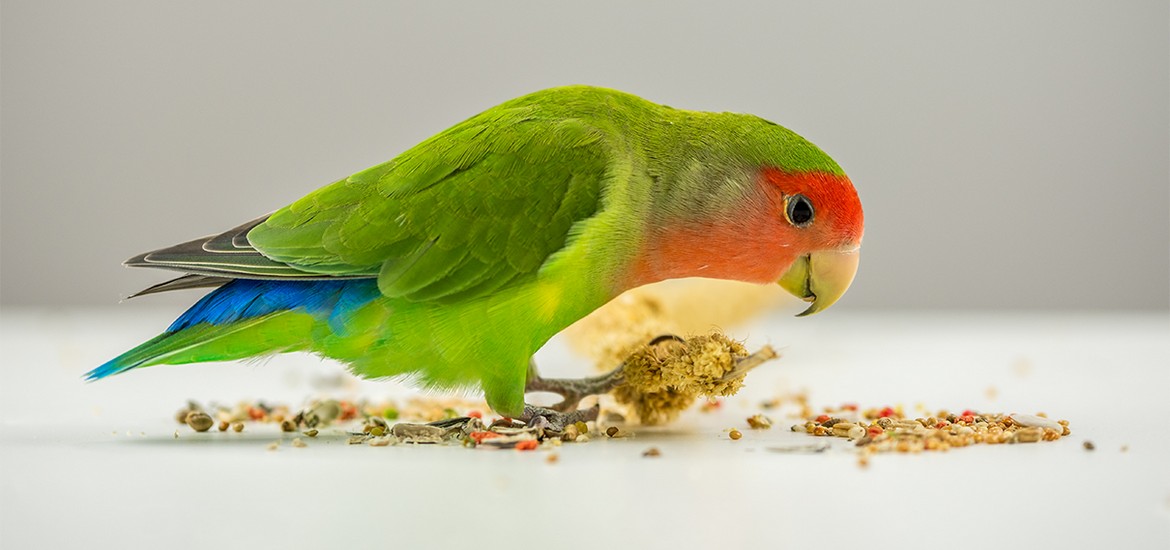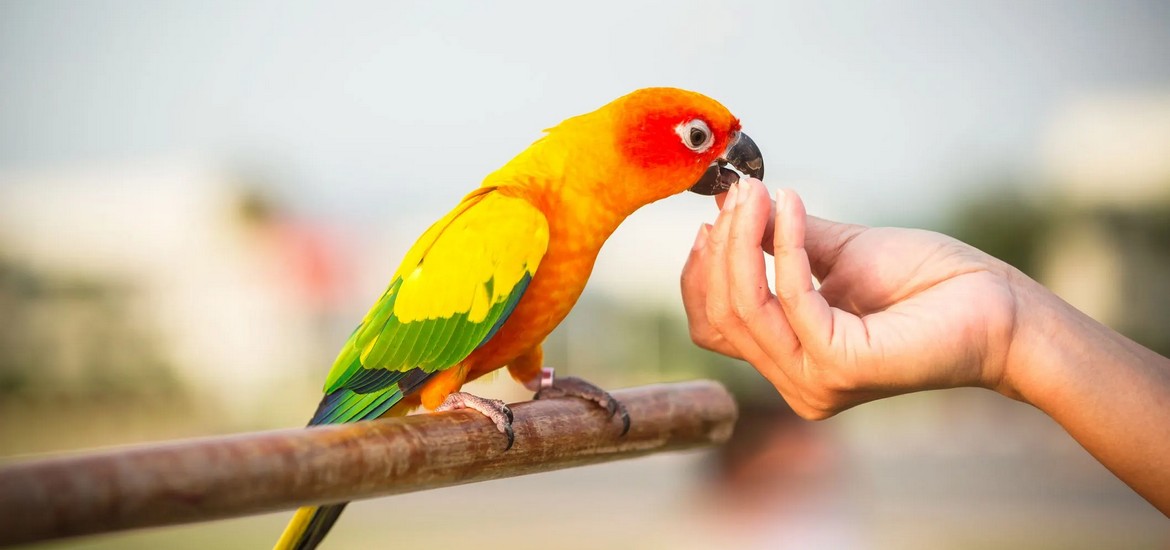Feb 27, 2023, 4:47 PM
It's similar to adopting a child to get a pet, whether a dog, cat or exotic bird. They must be treated like one; it takes a lot of work. This entails providing them with the correct nutrition and health care, shielding them from upcoming illnesses, or providing them with the specialized care they require. A pet bird is not a low-maintenance pet. Thus, a lot of responsibility must be accepted. Every pet bird needs at least a little bit of specialized care. Poor nutrition may affect several issues, including ill health, poor fertility and hatchability, and shortened life spans. Inadequate nourishment might cause the bird to perform poorly and lack energy. It may also make the bird more vulnerable to several illnesses. Malnutrition is not necessarily the goal when the term inadequate nutrition is used. It could also mean gluttony. Nutrition deficiency can be as uncomfortable and problematic as giving pets more food than they need. Beginner pet owners who want to try and make the best choices for their birds food in Dubai will discover all the knowledge they require here to be a fundamental foundation.

What Are the Cornerstones of a Healthy Diet?
Your pet bird consumes a variety of nutrient-rich components in the food that it consumes. Balanced levels of nutrients must be destroyed, processed, and absorbed by the body to nourish a pet bird. Nutrients can be divided into six main groups:
Water
Water is the most important nutrient. The two basic types of water sources are metabolic and ingested. Ingestion is the term used to describe food and water absorption by eating and drinking. Water is produced metabolically as food is broken down. It may come from lipid, protein, and glucose metabolism within the cell. Significant illness can follow after a 10% loss of body fluids. If the lost water is not restored, death will result. Some feedstuffs contain more water than others do. Ensure your bird has access to fresh water by taking all reasonable precautions.
Minerals
Animals' minerals comprise macro-minerals like calcium, phosphorus, sodium, potassium, chloride, magnesium, and sulfur. The amount of these minerals that must be included in the diet is often expressed as a percentage because they comprise most of the meal. Iron, zinc, copper, manganese, iodine, and selenium are examples of microminerals in the diet in trace amounts. These minerals are also referred to as trace minerals occasionally. The importance of these minerals to a bird's health is comparable to that of minerals that are needed in greater quantities.
Proteins
Protein quality refers to the quantity and ratio of each of the necessary amino acids a bird requires. Protein synthesis and breakdown occur continuously throughout the body. When there is a lack of energy, the bird must consume amino acids. Pet birds can only make the required proteins if they consume enough amino acids. It's ideal for keeping your pet bird's protein intake healthy but not excessive. When pet birds are fed excessive protein, liver and kidney problems frequently occur.
Lipids
The fats and oils in plants, particularly seeds, make up this nutritional class. When germination starts, the stored fats and oils in the basis provide the energy the budding plant needs to begin its life processes. The lipid in food gives the birds the critical fatty acids they need and a fantastic energy source. Due to the inhibition of general growth, the liver tends to accumulate fat. If the diet lacks essential fatty acids, egg size, and hatchability will drop. It will also be difficult for skin and feathers to form.
Carbohydrates
Nutritionists categorize the most popular dietary useable carbohydrate type, starch, as soluble. For pet birds, the seeds provide an excellent supply of carbohydrates for energy. There is yet another repeating glucose unit carbohydrate found in the kingdom of plants. Cellulose, sometimes known as "crude fiber," is a type of carbohydrate. Since cellulose is not soluble like starch, it cannot give energy to companion birds. Animals cannot generate the enzyme cellulase, yet it can release glucose for absorption. The right amount of cellulose in the bird's diet is necessary for food to go normally through its digestive system. Additionally, it assists by offering the volume needed for typical droppings.
Vitamins
Vitamins are categorized based on their solubility rather than how they function in pet birds, which would result in two groups. They fall into two categories: fat-soluble and water-soluble. Several fat-soluble vitamins include A, D, E, and K. When the diet is somewhat deficient in fat-soluble vitamins, birds often store them alongside fat. As a result, shortages frequently take a long time to materialize. Examples of water-soluble vitamins include vitamin C and the B complex. These water-soluble vitamins, such as thiamin, riboflavin, niacin, pyridoxine, and others, cannot be stored by animals. They must always maintain a diet.
What Brand should you select?
With food that is well-balanced, your bird can remain happy and healthy. Harrison's collection of bird feeders in Dubai tastes fantastic and helps your feathered friends get the nutrition they need. Harrison's is a brand that people associate with excellence. There is no need to supplement Harrison's professionally formulated meals, which avian vets and nutritionists developed. They are certified organic and non-GMO verified. Harrison's Bird Foods in Dubai offers a variety of seed mixes, bird bread, bird bread, and dry food options for all types of birds, including Budgies, Parrots, Canaries, African Greys, and Amazons been professionally created to match their dietary and nutritional demands. It is simple to acquire this online from a reputable veterinary supplier in Dubai, Eurovets.

What Primary Diet Should I Provide for My Birds?
Harrison's Bird Foods
While your veterinarian can create a perfect diet plan for your birds, the organic Harrison's Birds Food is one of the most well-known brands and feeds suggested by veterinarians and designed by top vets and avians. Some of the most well-liked products ideal for your birds' diet are listed below.
High Potency Coarse
For medium-sized to large birds such as African grey parrots, macaws, amazon parrots, cockatoos, etc., a premium first-use recipe.
High Potency Fine
For tiny to medium-sized birds, including cockatiels, conures, Quakers, and lovebirds, a premium first-use formula.
High Potency Super-Fine
A high-end first-use medication for small birds like finches and budgies.
High Potency Mash.
A High-End Small Bird First-Use Formula
Adult Lifetime Coarse
A daily maintenance formula is available for medium-sized birds, including Amazons, cockatoos, macaws, and Pionus.
Adult Lifetime Fine
A daily maintenance formula is available for small-to-medium-sized birds like cockatiels, lovebirds, Quakers, and conures.
Adult Lifetime Is Super Fine.
The formula for small bird upkeep for finches and budgies.
Pepper Lifetime Coarse.
Formula with a kick for medium-sized birds like Amazons, cockatoos, macaws, and Pionus
Power Treats
For most birds, a tasty reward and conversion formula
Juvenile Hand-Feeding Formula.
The method of hand-feeding chicks until weaning or adult birds who cannot feed themselves.
Adult Lifetime Mash
The formula for small bird daily upkeep—low risk of allergies.
High Potency Pepper (Fine).
For small-to-medium-sized birds like cockatiels, conures, Quakers, lovebirds, etc., the spicy first-use recipe.
